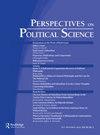致卡尔·施密特:《书信与反思》,雅各布·陶贝斯著,基思·特赖布译,迈克·格里姆肖导言,纽约:哥伦比亚大学出版社,120页,精装版,26.00美元/ 22.00英镑,ISBN: 9780231154123,出版日期:2013年。
Q4 Social Sciences
引用次数: 1
摘要
20世纪30年代,雅各布·陶比斯(Jacob Taubes,1923-1987)和他的家人离开奥地利前往瑞士躲避纳粹主义。在瑞士,陶伯斯同时接受了拉比的圣职和古典哲学教育(最终获得博士学位),然后在纽约与利奥·施特劳斯和耶路撒冷的格肖姆·肖勒姆一起深造。陶伯斯曾在哈佛大学和普林斯顿大学担任教职,之后在哥伦比亚大学和柏林自由大学获得永久学术职位,最后一个职位一直担任到1987年去世。从《圣经》解释学到海德格尔的哲学,再到霍布斯的阐释,再到卡尔·施密特的政治思想,陶伯斯的作品在政治理论、宗教社会学和他自己时代的政治学中都涉及到一系列令人印象深刻的问题。除了他20世纪40年代末的博士论文《西方末世论》(Abendländische Eschatologie)外,他一生中出现的大多数作品都是以散文、评论、版本、观点文章和编辑卷的形式出现的。他的所有其他专著,从《致卡尔·施密特》(Ad Carl Schmitt,1987)到他广为阅读的《保罗政治神学》(Die Politische Theologie des Paulus,1993)、《从文化到文化》(Vom Kult zur Kultur,1996)和《启示录与政治》(Apocalypse und Politik,2017),都是在死后出版的。奇怪的是,这些遗作中第一部以德语出版的《致卡尔·施密特》是最近出现在英语翻译中的。这本书汇集了陶伯斯关于施密特作品的一些偶然作品,以及他们的部分信件。在Tribe 2013年的英文译本出现之前不久,他们的信件的更完整的学术版2出现在德语中。这位拉比、知识历史学家和政治理论家的许多尖锐、微妙和尖锐的短语在哥伦比亚大学出版社出版的《致卡尔·施密特,信件与反思》一书中得到了恰当甚至优美的诠释。然而,在这个翻译中,也有很多地方陶伯斯的引号消失了,省略了他的省略号,甚至整个短语和句子都被默默地从文本中删除了。在某些情况下,陶比斯的引号被省略了,这些引号表示直接引用了海德格尔的话,在其他情况下,陶比斯的句子被截断了,他的主张也被改变了。在这里,我将重点讨论一些与政治哲学家和政治思想历史学家有关的修改和删减,他们希望与雅各布·陶伯斯(Jacob Taubes)一起思考(或反对),以及那些希望重建陶伯斯政治思想的人。陶比斯的《卡尔·施密特广告》(Ad Carl Schmitt,Gegenstrebige Fügung)对卡尔·施密特及其圈子思想中的反犹太情绪,以及这种情绪在德意志联邦共和国早期更广泛的流行进行了详细的描绘和激进的批判。然而,在Tribe的英文翻译中,这种描述和批评有时会被削弱,甚至被完全压制和省略。翻译中这方面的两个例子尤其值得注意。首先,在该集的第三部分,Gegenstrebige Fügung展示了卡尔·施密特写给极右翼公关人员Armin Mohler的信中的四段摘录或引文,施密特在信中讨论了他与雅各布·陶比斯的关系。在这些引文中的第一篇中,施密特在1952年讲述了一个故事,他分享了陶伯斯写给德国右翼政治中的一位旅行家的一封信:本文章由计算机程序翻译,如有差异,请以英文原文为准。
To Carl Schmitt, Letters and Reflections, by Jacob Taubes, translated by Keith Tribe, with an Introduction by Mike Grimshaw, New York: Columbia University Press, 120 pp., Hardcover, $26.00/£22.00, ISBN: 9780231154123, Publication Date: 2013.
As a young boy in the 1930s, Jacob Taubes (1923-1987) and his family left Austria for Switzerland to escape Nazism. In Switzerland, Taubes received both ordination as a rabbi and a classical education in philosophy (culminating in a doctorate), before going on to further study with Leo Strauss in New York and Gershom Scholem in Jerusalem. Taubes held teaching positions at Harvard and Princeton before attaining permanent academic positions at Columbia and the Free University of Berlin, the last of which he held until his death in 1987. Ranging widely from Biblical hermeneutics to the philosophy of Heidegger to the interpretation of Hobbes1 to the political thought of Carl Schmitt, Taubes’s works take up an impressive range of issues in political theory, the sociology of religion, and the politics of his own time. Aside from his doctoral dissertation from the late 1940s, Occidental Eschatology (Abendländische Eschatologie), most of the writings which appeared during his lifetime took the form of essays, reviews, editions, opinion pieces, and contributions to edited volumes. All of his other monographs, from To Carl Schmitt (Ad Carl Schmitt, 1987) to his widely read Political Theology of Paul (Die Politische Theologie des Paulus, 1993), From Cult to Culture (Vom Kult zur Kultur, 1996), and Apocalypse and Politics (Apokalypse und Politik, 2017), were published posthumously. Curiously, the first of these posthumous works to be published in German, To Carl Schmitt, is the most recent to appear in English translation. This book assembles a number of Taubes’s occasional writings on Schmitt’s works, as well as part of their correspondence. A fuller scholarly edition2 of their correspondence appeared in German shortly before the appearance of Tribe’s 2013 English translation. There are many poignant, subtle, and sharp phrases of the rabbi, intellectual historian, and political theorist which are rendered aptly, even beautifully, in the translation, which is published by Columbia University Press under the title To Carl Schmitt, Letters and Reflections. However, there are also many places in this translation where Taubes’s quotation marks have disappeared, his ellipses have been omitted, and even whole phrases and sentences have been silently cut from the text. In some instances, Taubes’s quotation marks signaling direct quotations from Heidegger have been omitted, in other instances Taubes’s sentences have been truncated and his claims have been altered. Here I will focus on some of the alterations and truncations relevant to political philosophers and historians of political thought wishing to think with (or against) Jacob Taubes, as well as those wishing to reconstruct Taubes’s political thought. Taubes’s Ad Carl Schmitt, Gegenstrebige Fügung presents a detailed portrait and radical critique of anti-Jewish sentiment in the thought of Carl Schmitt and his circle, as well as the prevalence of such sentiments in the early years of the German Federal Republic more broadly. However, in Tribe’s English translation this portrait and critique are at times dampened or even suppressed and omitted altogether. Two instances of this facet of the translation are particularly noteworthy. First, in the third section of the collection, Gegenstrebige Fügung presents four excerpts or citations from letters written by Carl Schmitt to the extreme right publicist Armin Mohler in which Schmitt discusses his relation to Jacob Taubes. In the first of these citations, Schmitt in 1952 relates the story of sharing a letter written by Taubes to a fellow traveler in the politics of the German Right:
求助全文
通过发布文献求助,成功后即可免费获取论文全文。
去求助
来源期刊

Perspectives on Political Science
Social Sciences-Political Science and International Relations
CiteScore
0.20
自引率
0.00%
发文量
24
期刊介绍:
Whether discussing Montaigne"s case for tolerance or Nietzsche"s political critique of modern science, Perspectives on Political Science links contemporary politics and culture to the enduring questions posed by great thinkers from antiquity to the present. Ideas are the lifeblood of the journal, which comprises articles, symposia, and book reviews. Recent articles address the writings of Aristotle, Adam Smith, and Plutarch; the movies No Country for Old Men and 3:10 to Yuma; and the role of humility in modern political thought.
 求助内容:
求助内容: 应助结果提醒方式:
应助结果提醒方式:


